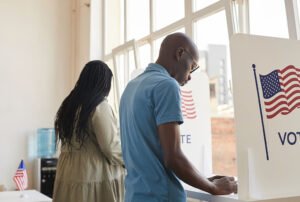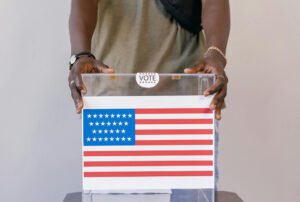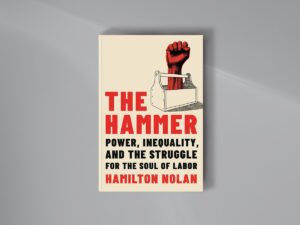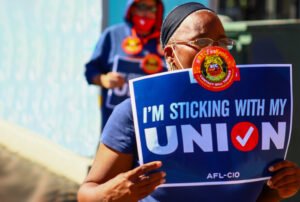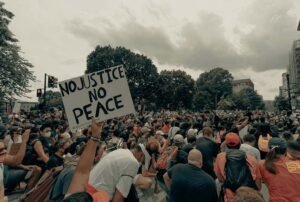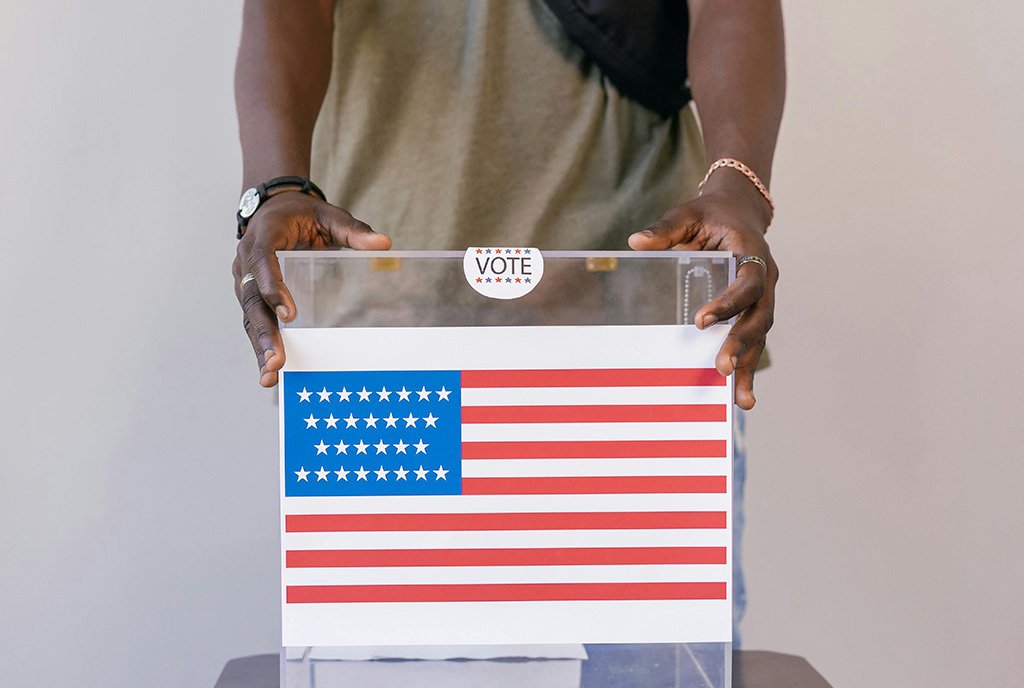July 18, 2012; Source: NPR
In a new study, the nonprofit, nonpartisan Brennan Center for Justice highlights the trouble of potential voter disenfranchisement in states that have enacted laws requiring voters to show photo ID at the polls. The study found that 10 million potential voters in states mandating photo ID to vote live more than 10 miles from locations where they could obtain such an ID. Of that group, approximately 500,000 do not have a car or access to other transportation. It’s likely that many among this group already have a valid photo ID, however it is also likely that many among this group do not. And among those who do have a valid photo ID, there may be questions as to their capacity to renew an expiring ID in time so as not to miss the opportunity to vote in future elections.
As an example of the type of voter the Brennan Center study suggests could be disenfranchised by the voter ID requirement, NPR points to Devon, Pa. resident Bea Bookler. Bookler says he has always voted, but now, thanks to Pennsylvania’s voter ID law, she will have difficulty doing so unless she can make it to the motor vehicle office 10 miles away, an endeavor that the 94-year-old woman, who uses a walker, says would be challenging.
Sign up for our free newsletters
Subscribe to NPQ's newsletters to have our top stories delivered directly to your inbox.
By signing up, you agree to our privacy policy and terms of use, and to receive messages from NPQ and our partners.
“How would I get there and how would I manage to stand in line?” she asks, and NPR notes that she can “barely” get to the polling place that is next to her retirement community. Bookler also doesn’t understand why she should need a photo ID to vote in the first place, as she hasn’t needed one in the past. “I have an ID which says I am registered to vote in Chester County,” she says. “There is no reason why I should need anything else. It’s an outrage.”
The Brennan Center study raised other concerns about voter ID laws. For instance, it found that “people of color are more likely to be disenfranchised by these laws since they are less likely to have photo ID than the general population.” In addition, it found that government locations where people can get photo IDs may have hours that render them inaccessible to many working people (in the extreme case of Sauk City, Wisc., the ID office is only open on the fifth Wednesday of any month, but only four months this year even contain that fifth Wednesday). Also, more than a million voters in states with voter photo ID laws live below the federal poverty line, which the Center indicates means paying for the documents needed to obtain the right ID could essentially turn into something of a “poll tax.”
Ten states have voter photo ID laws and similar measures are pending in other states. The question remains as to how many people these laws might actually negate from voting, but as NPQ sees it, that question may be almost immaterial to the issue at hand. That is, voting is an inalienable right of each and every U.S. citizen. If a law prohibits even just one person who would otherwise be able to cast a ballot from voting, that law would seemingly be unconstitutional. –Mike Keefe-Feldman


